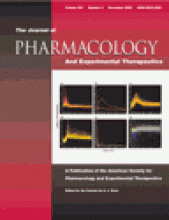Abstract
It has been shown that morphine-tolerant animals have an altered immunological sensitivity to stress. Although the glutamatergic system has been implicated in the neuroadaptive process underlying this tolerant state, its potential role in development of the altered immunological sensitivity consequent to chronic morphine treatment is not known. To determine this, a morphine-tolerant state was induced by 10-day administration of an escalating dose of morphine from 10 to 40 mg/kg (s.c., b.i.d.), and lymphocyte proliferative response to a T-cell mitogen was measured. Morphine challenge (10 mg/kg s.c.) after days of treatment was gradually less immunosuppressive, and this tolerance progression was delayed by concurrent administration of the N-methyl-d-aspartate (NMDA) receptor antagonist (-)-5-methyl-10,11-dihydro-5H-dibenzo[a,d]cyclohepten-5,10-imine maleate (MK-801) (0.1 mg/kg s.c.) with chronic morphine. The effect was independent of glucocorticoid level changes and was not a result of an acute interaction of the drugs or the prolonged presence of the antagonist alone. Subsequent to chronic treatment, animals were subjected to opioid withdrawal and water stress. Both stressors induced 50% immunosuppression in morphine-tolerant animals compared with saline-treated controls. Increased immunological sensitivity to these stressors was attenuated when MK-801 was administered with chronic morphine as demonstrated by an accelerated recovery rate and lack of immunosuppression from opioid withdrawal and water stress, respectively. Together, these findings provide the first evidence that the neuroadapted state of the immune response after chronic morphine can be modified by NMDA receptor antagonism, as illustrated by a temporal deceleration of the development of immunological tolerance during chronic treatment that is associated with an attenuation of the immunological vulnerability of morphine-tolerant animals to stress.
Footnotes
-
DOI: 10.1124/jpet.103.053264.
-
ABBREVIATIONS: NMDA, N-methyl-d-aspartate; MK-801, (-)-5-methyl-10,11-dihydro-5H-dibenzo[a,d]cyclohepten-5,10-imine maleate.
- Received April 18, 2003.
- Accepted July 28, 2003.
- The American Society for Pharmacology and Experimental Therapeutics
JPET articles become freely available 12 months after publication, and remain freely available for 5 years.Non-open access articles that fall outside this five year window are available only to institutional subscribers and current ASPET members, or through the article purchase feature at the bottom of the page.
|






